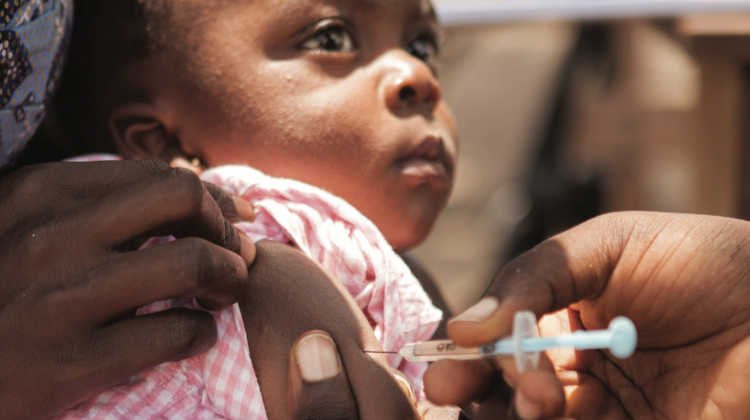Despite the proven effectiveness of immunisation in preventing diseases, immunisation programmes in many African communities have continued to face resistance.
Development Diaries reports that World Immunisation Day is commemorated yearly on 10 November to increase understanding of the significance of promptly receiving vaccinations against various diseases.
According to the World Health Organisation (WHO), roughly one in five children in Africa do not obtain all of the essential and basic vaccinations they need. Because of this, almost 30 million African children under the age of five still experience vaccine-preventable illnesses (VPDs) each year.
A 2021 study by BMC Public Health estimated that 29 percent of deaths among children aged one to 59 months were due to vaccine-preventable diseases.
It also revealed that expanded programme on immunisation vaccines has not improved in some African countries, such as Nigeria (31 percent), Ethiopia (43 percent), Uganda (55 percent) and Ghana (57 percent).
Immunisation, a cornerstone of public health, has saved countless lives and reduced the burden of preventable diseases worldwide. Nevertheless, immunisation initiatives in African communities sometimes encounter resistance, resulting in low vaccination rates, despite their demonstrated usefulness.
Cultural and religious beliefs play a significant role in shaping health behaviours in African communities. Some traditional beliefs and practices may conflict with the principles of immunisation.
For example, misconceptions about vaccines causing infertility, altering one’s DNA, or being part of a conspiracy can lead to vaccine hesitancy. Religious leaders and practices can also influence decisions about immunisation, with some groups opposing vaccinations on religious grounds.
The success of immunisation programmes depends on a well-functioning health care system and adequate infrastructure.
Unfortunately, in many African communities, limited access to health care services, poor transportation, and a lack of cold chain storage facilities can hinder the effective distribution and administration of vaccines.
This can contribute to vaccine resistance, as communities may become disillusioned with immunisation efforts due to the perceived inefficiency of the system.
Furthermore, socioeconomic factors also play a crucial role in resistance to immunisation in African communities. Poverty, limited education, and inadequate access to health care can lead to lower vaccination rates.
Families struggling to meet basic needs may prioritise other concerns over immunisation, leading to delayed or missed vaccinations.
Additionally, it is very difficult to provide vaccination services in areas impacted by political unrest and violence. Lower vaccination rates and immunity resistance can be caused by displacement, disruptions to health care systems, and mistrust of foreign aid organisations.
Addressing the problem of resistance to immunisation in African communities requires engaging with local communities and understanding their cultural and religious beliefs.
Also, health education campaigns should be tailored to address specific concerns and misconceptions.
Investing in health care infrastructure, including improving access to health care services, cold chain storage, and transportation, can enhance vaccine delivery.
Development Diaries calls on African health ministries and agencies to adopt a holistic approach that takes into account cultural and socioeconomic factors, as well as effective communication and health care infrastructure development to tackle the problem of immunisation resistance.
Photo source: WHO







